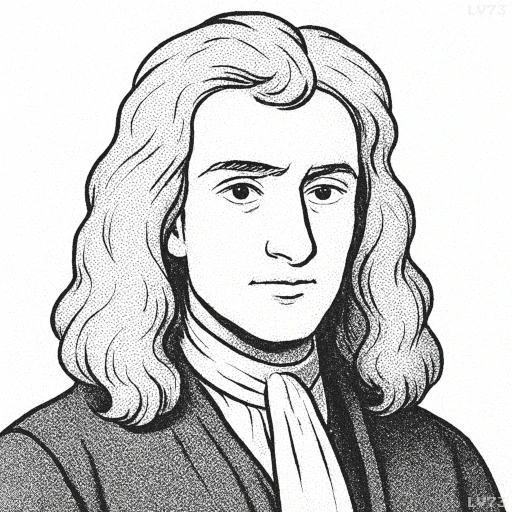“In experimental philosophy, we are to look upon propositions inferred by general induction from phenomena as accurately or very nearly true, notwithstanding any contrary hypotheses that may be imagined, till such time as other phenomena occur by which they may either be made more accurate or liable to exceptions.”

- January 4, 1643 – March 31, 1727
- Born in England (UK)
- Natural philosopher, mathematician, physicist, astronomer, theologian
table of contents
Quote
“In experimental philosophy, we are to look upon propositions inferred by general induction from phenomena as accurately or very nearly true, notwithstanding any contrary hypotheses that may be imagined, till such time as other phenomena occur by which they may either be made more accurate or liable to exceptions.”
Explanation
In this quote, Isaac Newton is discussing how we should approach knowledge derived from experimental philosophy—the scientific method that emphasizes empirical observation and inductive reasoning. Newton suggests that when we form conclusions (or propositions) based on general induction from observed phenomena, we should regard these conclusions as accurate or nearly true for the time being. This applies even if there are contrary hypotheses or theories that could be imagined. However, these conclusions are provisional and open to revision. Newton asserts that as new phenomena are discovered, these conclusions might be refined or adjusted, either to make them more precise or to account for exceptions.
Newton’s view highlights the tentative nature of scientific knowledge. While we may infer laws or principles from observations, those conclusions are not absolute truths. Instead, they are based on the best available evidence at the time and should be adjusted when new evidence arises that either confirms or challenges them. This reflects the idea of scientific theories as being subject to revision based on new data—a core principle of the scientific method. Newton’s approach encourages a balance between confidence in conclusions drawn from experiments and an openness to change as more evidence comes to light.
In modern science, this principle remains foundational. The scientific process involves forming hypotheses based on initial observations, testing them through experiments, and then updating our understanding when new evidence arises. Newton’s view of inductive reasoning in experimental philosophy anticipates the modern understanding of science as a dynamic and evolving field, where provisional truths are accepted until they are superseded by new insights or more accurate measurements. His statement underscores the self-correcting nature of science, where knowledge is refined over time, making it a reliable, though continually evolving, method for understanding the natural world.
Would you like to share your impressions or related stories about this quote in the comments section?
